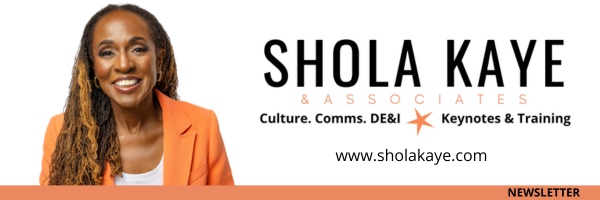How Can We Help?
Search for answers or browse our knowledge base.
Want to resolve workplace conflict? Check out these strategies

Why developing the skills to resolve differences is important
We all have differences of opinion from time to time… but do you know how to resolve them without needing to get a third party involved?
One of my clients recently shared:
“My team members keep coming to me to resolve their conflicts. They don’t seem to have the skills to resolve differences without asking me to sort it out for them.”
Several other clients have briefed me similarly… that some of their team members waste valuable time by coming to the leader to sort out their spats, rather than having a conversation between themselves to resolve differences.

It looks like conflict resolution skills will never go out of style!
As long as we’re human beings with opinions, values, ideals and preferences, we’re bound to encounter differences of opinion. It’s not about being right or wrong, more about how to negotiate differences and reach satisfactory conclusions that allow us to make progress AND preserve relationships.
The potential benefits of conflict
Conflict can be useful because when managed well it:
1. Boosts Innovation:
Friction from differing opinions can enhance creativity, driving innovation by forcing diverse ideas to surface.
2. Promotes Growth:
Conflicts can help improve communication, negotiation skills, and emotional intelligence, fostering personal and team development.
3. Improves Decision-Making:
Disagreements lead to a more thorough examination of issues, avoiding groupthink and ensuring more robust decisions.
The mark of an effective team is not that they never have disagreements. More, that these challenges aren’t allowed to hold the team back.
So if you’re a leader, how do you help your team resolve their conflicts and collaborate harmoniously?
Here are 3 behaviours to promote:
1. Open Communication:
Encourage a culture of transparency and open dialogue. This allows team members to voice their concerns and discuss the conflict directly. Respectful listening and non-defensive responses are key elements.
2. Empathy and Understanding:
Ask team members to step into the shoes of their colleagues to understand their perspectives. This can help to de-escalate the conflict and bring about a resolution that acknowledges everyone’s viewpoints.
3. Collaborative Problem-Solving:
Team members should seek a resolution that benefits all parties involved, rather than trying to “win” the argument. This can be achieved by brainstorming solutions together, establishing common goals, and finding compromises that satisfy everyone’s needs.
And this article provides advice on how to avoid being an ‘umbrella’ manager (a leader who constantly tries to shield their team from organisational struggles and challenges). https://hbr.org/2023/03/how-to-equip-your-team-to-problem-solve-without-you
Next month I’ll be speaking to a group of senior Learning and Development leaders about Inclusive Leadership practices. This is one of my favourite topics of conversation.
How inclusive leaders help resolve conflict
Inclusive leaders help resolve conflict by:
1. Encouraging Diverse Voices: they ensure all perspectives are heard, fostering mutual respect and shared understanding, thereby diffusing conflict.
2. Promoting Collaborative Decision-Making: they involve all team members in decisions, reducing potential disputes and encouraging collective responsibility for outcomes.
If you’re finding that conflict and differences are getting in the way of team performance in your organisation, then you might want to get in touch with us at Shola Kaye & Associates for keynotes and training on topics such as:
- Managing Conflict Productively
- Inclusive Leadership
- Inclusive Communication Strategies and
- Dealing with Challenging Conversations
Our associates also offer a variety of team facilitation sessions, whether virtual or in-person in the UK or USA
Book a call with us to discuss what you need (at calendly.com/sholakaye/15) or drop an email to heather@sholakaye.net sharing a bit about your challenges and goals.
COMMUNICATION CORNER: strengthen your conflict resolution muscles
If you’re an individual contributor and would like to strengthen your conflict resolution muscles, take a look at these articles, and seize every opportunity to put in some reps.
In this first article, the author refers to quiet quitting and quiet firing as ways to avoid the ‘mucky’ work of maintaining professional relationships. But in turning away from this work we lose out on opportunities to build compassion and resilience.
And here’s another with concrete insights for maintaining work relationships despite differences of opinion:
My favourite (but not easy to do) is Tip 6: Make disagreement part of the creative process.
Or you can simply start by recalling times that conflict wasn’t satisfactorily resolved and then reflect on what you could have done differently.
Imagine how powerful it would be for you and your work life if you had the skills to resolve conflict and collaborate productively with anyone, regardless of their personality type and opinions.
Wishing you an excellent month!
Shola
Here are a few things you might want to do after reading this newsletter:
1. Book a call at calendly.com/sholakaye/15
2. Request our brochure – email teamshola@sholakaye.net
3. Check out our website for a list of Shola’s keynotes at sholakaye.com/speech-topics
Hi, I’m Shola and I help you create a people-first culture. My work sits at the intersection of Inclusion, Communication & Emotional Intelligence.
My keynote talks and workshops help your leaders and employees create high-performing work environments where people feel a sense of belonging and psychological safety. Sessions are high energy, interactive, and every participant walks away with at least one practical framework for connecting and collaborating more effectively.
Sound good to you? Please reach out and let’s discuss your next event! 🙂🎤✨
